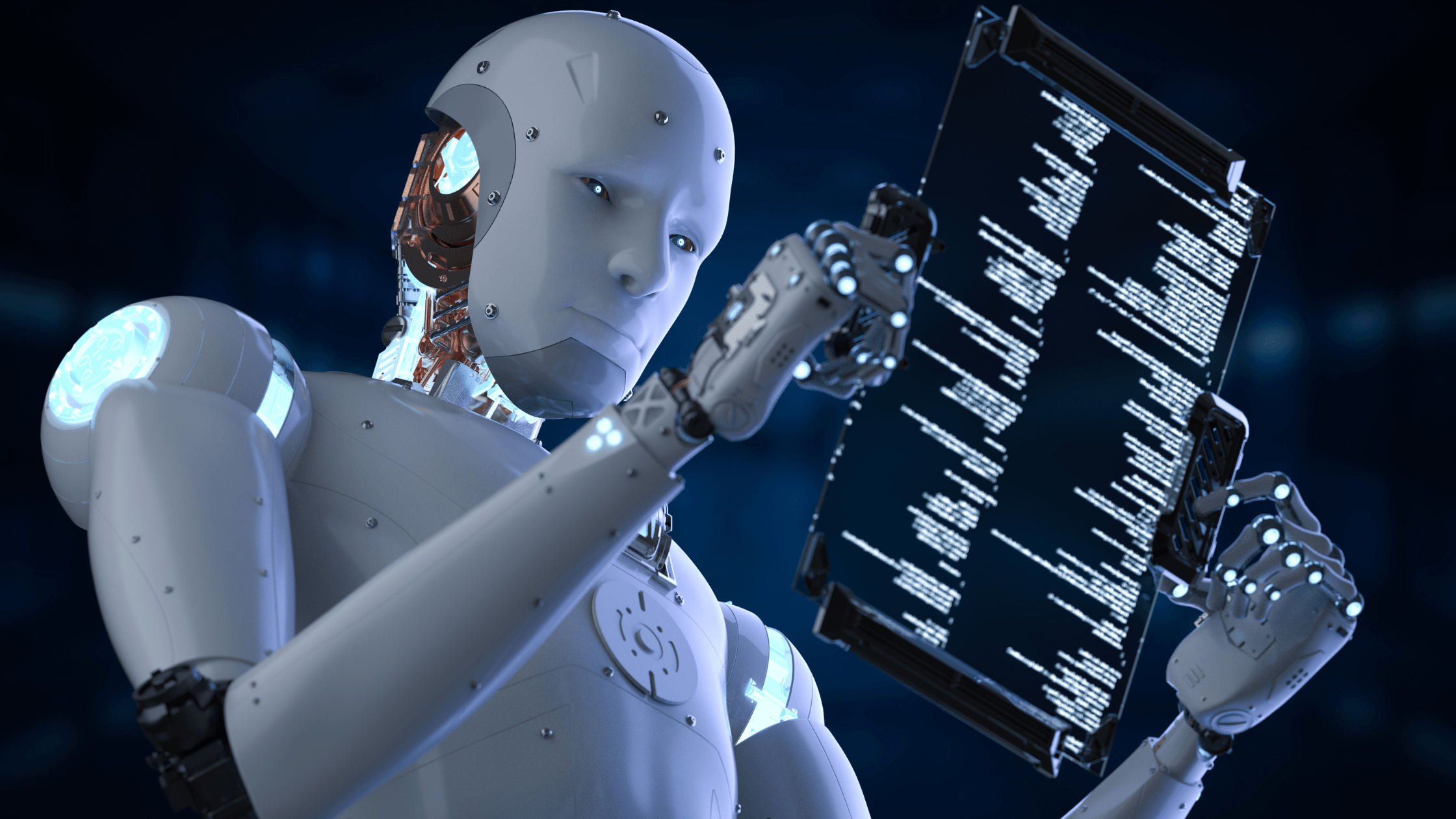In recent years, artificial intelligence (AI) has made substantial strides, transforming various aspects of the business world. One sector that has experienced significant change is recruitment. As we enter 2023, AI continues to revolutionise the way companies hire, streamlining processes and ensuring a more accurate candidate selection.
The use of Artificial Intelligence in recruitment leads to a more efficient and effective hiring process, resulting in considerable time and resource savings for businesses. For job seekers, AI-driven systems enable a more personalised and targeted job search experience. This article will explore five ways that Artificial Intelligence is impacting the recruitment landscape in 2023.
From automating the tedious tasks of CV screening and shortlisting to employing machine learning algorithms for precise candidate-job matching, Artificial Intelligence is changing the game in recruitment. With its potential to optimise the hiring process further, both companies and candidates stand to benefit from this technological revolution.
Automating the Screening Process
Intelligent CV Filtering
Utilising AI in recruitment can increase efficiency during the screening process by automating manual tasks. One major advancement in this field is intelligent CV filtering. AI-powered recruitment solutions are capable of automatically sifting through hundreds, even thousands, of CVs, identifying those that best match the job requirements. This not only saves considerable time and effort for recruiters but also increases the accuracy of candidate selection.
In addition, these intelligent filtering systems are designed to learn and improve over time, using algorithms that continually refine their filtering process based on feedback from recruiters and hiring managers. This continuous learning process ensures that the filtering system remains relevant and up to date, accounting for changes to industry standards and new types of candidate qualifications.
Bias-Free Assessments
Another vital aspect of automating the screening process is the introduction of bias-free assessments. Traditional methods of candidate screening can be subject to unintentional biases – such as gender, race, and cultural background – that may lead to unfair treatment or inadequate talent choices.
AI-driven recruitment systems can help address this issue by evaluating candidates impartially, considering only their qualifications, skills, and experience. Employers can set their own criteria for assessing each candidate, ensuring that the AI-powered algorithms prioritise relevant attributes over personal factors that may introduce bias. This results in a fairer and more transparent recruitment process that meets the needs and values of the hiring organisation.
To summarise, implementing Artificial Intelligence in recruitment simplifies and streamlines the candidate screening process through intelligent CV filtering and bias-free assessments. This technology allows for more accurate and unbiased candidate selections, ultimately benefiting both the recruitment process and the overall quality of talent acquisition.
Enhancing Candidate Experience
Personalised Job Recommendations
AI technology has greatly improved the candidate experience by offering personalised job recommendations. By using machine learning algorithms that analyse job descriptions and candidate profiles, Artificial Intelligence can determine the most suitable job openings for each individual. This approach not only saves time for job seekers and recruiters, but it also increases the chances of a successful job match. Moreover, AI-driven personalised job recommendations offer a tailored experience to candidates, which helps to maintain their interest and reduce the chances of them getting irrelevant job suggestions.
Chatbots for Real-Time Engagement
Chatbots are another Artificial Intelligence innovation that has significantly impacted the recruitment process. These virtual assistants offer real-time messaging support to candidates, answering their questions and guiding them through the application process. By offering instant feedback and support, chatbots can reduce the response time, resulting in a more engaging and efficient candidate experience. Additionally, chatbots can be programmed to recognise frequently asked questions, directing candidates to relevant resources and addressing their concerns more effectively.
In conclusion, Artificial Intelligence has revolutionised the recruitment industry in various ways, focusing primarily on enhancing the candidate experience. Personalised job recommendations and chatbots have greatly improved the recruitment process, offering tailored support and guidance for job seekers. As Artificial Intelligence continues to develop and integrate within the industry, we can expect to see even further advancements that benefit both candidates and recruiters alike.
AI-Powered Recruitment Analytics
AI-powered recruitment analytics is transforming the hiring landscape in 2023 by utilising data-driven insights to improve hiring practices and streamline processes. It encompasses various metrics and techniques that enhance the efficiency and accuracy of the recruitment process. This section focuses on two such aspects: predicting hiring outcomes and measuring recruitment efficiency.
Predicting Hiring Outcomes
One powerful application of Artificial Intelligence in recruitment analytics is the ability to predict hiring outcomes with greater accuracy. By analysing historical data on candidate qualifications, skills, and job performance, machine learning algorithms can identify patterns and relationships that may have been previously overlooked. These insights help recruiters:
- Identify candidates who are more likely to excel in a particular role
- Forecast the potential impact of a new hire on the team or organisation
- Estimate time-to-fill for specific vacancies
In essence, AI-driven hiring predictions facilitate smarter talent acquisition decisions, reducing the risk of costly hiring mistakes and increasing overall success rates.
Measuring Recruitment Efficiency
Recruitment efficiency is a critical component of any successful hiring process. By implementing AI-enabled analytics, organisations can easily gauge the effectiveness of their recruitment strategies and make improvements when necessary. Key performance indicators (KPIs) and other metrics monitored by Artificial Intelligence solutions can include:
- Time-to-fill: The average time it takes to fill a vacancy
- Quality of hire: Quantifiable factors that demonstrate a candidate’s performance and contribution to the organisation
- Candidate satisfaction: Feedback and reviews provided by applicants throughout the recruitment process
Leveraging these insights, organisations can identify bottlenecks, streamline workflows, and optimise their recruitment efforts to ultimately secure top talent and remain ahead of the competition.
In conclusion, AI-powered recruitment analytics has revolutionised the industry in 2023 by providing data-driven insights to improve both short-term and long-term hiring outcomes. By predicting hiring success and measuring efficiency, organisations can optimise their strategies and make smarter talent acquisition decisions.
Optimising Talent Sourcing
In 2023, artificial intelligence (AI) has been revolutionising the recruitment process through its applications in optimising talent sourcing. By harnessing the power of Artificial Intelligence and machine learning, hiring teams are now able to better identify candidates with the right skills, making the process more efficient and cost-effective.
Data-Based Sourcing Channels
One of the primary ways AI has transformed recruitment is by incorporating data-based sourcing channels. Using machine learning algorithms, AI can analyse vast amounts of data from various sources, such as job boards, social media, and online profiles, to identify and target the right candidates. This enables organisations to find talent which best matches the requirements of their open positions with greater precision.
A few key benefits of data-based sourcing channels are:
- Accuracy: Artificial Intelligence can analyse and identify patterns in data, effectively narrowing down the search for candidates that best fit the job requirements.
- Speed: The time taken to screen and sort through numerous applications is significantly reduced with the help of Artificial Intelligence and automation.
- Cost-effectiveness: Organisations can save resources by using AI-driven talent sourcing, ultimately reducing their recruitment costs.
Passive Candidate Engagements
AI-driven systems for recruiting have revolutionised the engagement with passive candidates – individuals who are not actively searching for a new job but might be open to exploring opportunities. Artificial Intelligence tools can detect and evaluate the skills, experiences, and qualifications of these passive candidates, even if they haven’t applied to a company’s job opening.
Through chatbots and other AI-assisted communication methods, recruiters can initiate a conversation with passive candidates to gauge their interest in a potential role. By automating this process, hiring managers can focus on qualified candidates and save time on manual outreach.
Utilising AI for passive candidate engagement has several advantages:
- Higher-quality talent pool: Engaging with passive candidates can help organisations discover highly skilled and experienced individuals who may not be actively looking for a job.
- Enhanced candidate experience: By using Artificial Intelligence to initiate conversations and answering queries, passive candidates can receive relevant information about open positions, making them feel more valued and engaged.
- Developing a proactive sourcing strategy: Artificial Intelligence allows organisations to move beyond reactive recruitment by actively identifying top talent for current and future opportunities.
In conclusion, AI-driven approaches for optimising talent sourcing have had significant impacts on the recruitment landscape in 2023. Data-based sourcing channels and passive candidate engagements have streamlined the hiring process, making it more efficient, accurate, and cost-effective.
Future Employment Trends in AI and Recruitment
Integrating AI Ethics
As AI becomes more prevalent in recruitment processes, there is a growing need to focus on the ethical implications of using this technology. One concern is the potential for AI algorithms to introduce biases and perpetuate disparities in hiring, as noted by the World Economic Forum. To address this issue, organisations are investing in developing ethical guidelines and frameworks for AI-based recruitment tools. These efforts aim to promote transparency, fairness, and accountability in the use of Artificial Intelligence during the hiring process.
Another ethical concern is the potential for AI-based personality assessments to lack reliability and be integrated into hiring without the knowledge of recruiters or applicants. To mitigate these risks, companies are working to develop more reliable AI models and ensure they are used in a manner that respects the privacy rights of candidates and complies with data protection regulations.
Emerging Technologies
With the rise in AI adoption, several new technologies have emerged to revolutionise recruitment. Some noteworthy examples include:
- Efficient Candidate Screening: AI-powered tools can help streamline the screening of CVs and cover letters, saving time and resources for both recruiters and job seekers. These tools can analyse large volumes of data, allowing for a more comprehensive review of prospective candidates.
- Bias Reduction: Artificial Intelligence can be used to minimise unconscious bias in the recruitment process by objectively assessing candidates based on their skills and experience, rather than relying solely on human judgement. This can lead to a more diverse and inclusive workforce.
- Predictive Hiring: AI can be used to predict which candidates are most likely to succeed in a particular role or organisation. This can help companies to make more informed hiring decisions and minimise the risk of turnover.
- Streamlined Interview Processes: Artificial Intelligence can assist in scheduling interviews and automating the follow-up process, making it easier for candidates and recruiters to coordinate their busy schedules and ensuring a positive candidate experience throughout the hiring process.
In conclusion, the future of recruitment is set to be transformed by Artificial Intelligence and emerging technologies. As ethical considerations continue to be integrated, Artificial Intelligence has the potential to create a more transparent, fair, and efficient hiring process. It is, therefore, essential for companies and recruiters to adapt to these evolving trends and make the most of the opportunities that AI-driven recruitment brings.
Enjoyed this blog post? Let us know your thoughts by emailing us at info@rekkruut.com, or visit us on LinkedIn and Facebook!
Don’t forget to subscribe to our RekkTalk Newsletter, and visit our RekkBlog!



